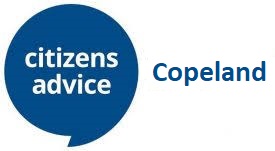Money Confidence
Select advice topic

‘Priority debts’ are debts that can cause you particularly serious problems if you don’t do anything about them.
You need to work out which of your debts are priority debts and deal with them first. Make sure you’ve collected together information about all of your debts.
1. Identify and deal with your priority debts
Contact your nearest Citizens Advice if:
- you’re struggling to deal with your priority debts
- you have more than 1 priority debt and you need help deciding which to deal with first
If you’ve got any of these, they’re your priority debts:
- Rent arrears
- Mortgage arrears or secured loan arrears
- Council tax arrears
- Gas or electricity bills
- Phone or internet bills
- TV licence payments
- Court fines
- Overpaid tax credits
- Payments for goods bought on hire purchase or conditional sale
- Unpaid income tax, National Insurance or VAT
- Unpaid child maintenance

2. Deal with your other debts
Once you’ve got your priority debts under control, you should look at all your other debts. They’re ‘non-priority debts’ because the problems they cause are less serious.
Your non-priority debts might include:
- credit card or store card debts
- catalogue debts
- unsecured loans including payday loans
- unpaid water bills – your supplier can’t cut off your water supply
- overpayments of benefits – apart from tax credits
- unpaid parking tickets – these are called Penalty Charge Notices or Parking Charge Notices
- money you owe to family and friends
If you don’t pay these debts, your creditors can take you to court to get you to pay. You can find out more information on what to do if you’re being taken to court by click here or contact us
If you owe money to family and friends, it might help to tell them you have other debts. They might offer to wait until you’ve paid off your other debts before asking you to pay them back.
If you were an additional cardholder
If you were an authorised additional cardholder on a credit card account, the credit card company can’t ask you to repay any debts on the card. These are always the responsibility of the main cardholder.
Get help with your debts
National Debtline provides free information and advice to people living in England, Wales and Scotland. It also provides an information pack on dealing with debt.
Telephone: 0808 808 4000 or webchat with an adviser
Monday to Friday, 9am to 9pm and on Saturday, 9.30am to 1pm
StepChange Debt Charity offers free, confidential advice and support to anyone who is worried about debt. They can also set up plans to help you pay off your debts within a reasonable timeframe if that is the best option for you.
Telephone: 0800 138 1111 or webchat with an adviser
Monday to Friday, 8am to 8 pm and Saturday 9am to 2pm (webchat 9am to 2pm)
PayPlan offers free debt advice and solutions to clients. They can also set up plans to help you pay off your debts within a reasonable timeframe if that is the best option for you
Telephone: 0800 716 239 or web chat with an adviser
Monday to Friday, 8am to 8pm and on Saturday 9am to 3pm

